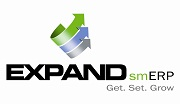ERP – THE BEST WAY TO REDEFINE THE MANUFACTURING INDUSTRY! KNOW HOW?
Way back in the olden days, business data and records were maintained in complex spreadsheets and files and voluminous folders. When businesses grew in scale, such antiquated systems also got obsolete. They were replaced by ERP systems which were more than just organising and scheduling modules for manufacturing enterprises. They combined the virtues of business planning and management, production scheduling, inventory control, customer relationship management and alignment of partners in the supply chain. The manufacturing sector is piled with competition and susceptible to an ever-changing market ecosystem. To remain at the top of the game, manufacturers need ERP systems that can be deployed and maintained off-site, are comprehensible, scalable, customizable, cost-effective and easy to use. Every industry has their own specific needs and processes. The ERP solution provider needs to understand the business well to define the scope of the software. Expand ERP has over 15 years of extensive R&D and market testing to make the solution robust and perfect, exactly for your specific business need.
According to an ERP Software Market Report published by Allied Market Research report, the global market is expected to garner $41.69 billion by 2020.
Still contemplating about adopting Cloud based ERP for your manufacturing industry?
Here’s why your manufacturing unit needs a modern ERP system:
From conception and design through to manufacturing and delivery, ERP is built to handle the complex needs of manufacturers that use engineering in the design and build of their products. ERP gives you complete visibility into your software processes to help situs judi slot online terpercaya integrate engineering activities, streamline operations, improve efficiencies, manage complexities and grow.
Cost-effective:
ERP software makes quality management easier. Quality of the product is assured with ERP, which reduces the number of finished goods that are discarded. You gain real-time business visibility with analytics and reporting. The predictive defect analysis made available with artificial intelligence provides deep, timely insights into all aspects of your business. This limits wastage, reduces cost and increases the profit margin for a manufacturer. As the old saying goes, money saved is money earned.
Streamlines Processing:
Manufacturing operations which otherwise seem complex and redundant, are automated by an ERP system and streamlined across departments. Users can navigate slot gacor complex processes easily in less time. The result is improved efficiency and cost.
- Maintaining Accuracy in Inventory:
An ERP solution can track your entire inventory in real-time, which makes every transaction and business activity extremely transparent. Shop floor advisors can cross check the quantity of each product. Having accurate inventory or stock list provides products and services that deliver immediate value to clients.
Agility saves Time:
ERP offers to extend productivity, security and access to information to mobile workers plus partners and customers, working anywhere, anytime on any device. Decision makers compare the system generated reports on regular intervals to analyze the varied market demands and capitalize on customers purchase trends.
Profound Analytics:
All the departments of a manufacturing business are unified and synchronized in a modern ERP solution. Consolidated reports can be generated using the same system resulting in accuracy in analysis and precise forecasting. For example, an Accountant who can readily access charts and reports can make decisions based on real values and figures.
Optimize Supply chain:
Fast growing businesses need strategies to boost productivity, improve quality and reduce costs. Supply chain management (SCM) in an ERP system smoothens the planning and execution of activities in the business. This monitors the supply of raw materials to meet the demands of the finished goods.
To Conclude:
Cloud ERP solution is a huge revolution in the manufacturing industry. Most business owners have either already implemented ERP or are in the process of implementing it. So why should you lag behind in this competitive market?
Upgrading to Expand smERP will give your business an added edge for optimum returns on investment. As a solution that is 100 % focused on the needs of manufacturers and distributors, Expand smERP functionality includes primary and alternate BOMS and routing, Material Resource Planning, Masters Production Scheduling, Shop floor execution, scheduling Workbench, Inventory and Warehouse Management and Quality assurance.
Focus on finding a solution that aids you to achieve these benefits. If you’re considering implementing a manufacturing ERP solution contact us to help you develop a digital strategy to meet your business needs.
Our cloud solution offers a comprehensive suite of application without the costly hardware requirements. With Expand smERP you are sure to reap all the benefits of a hosted cloud environment.


